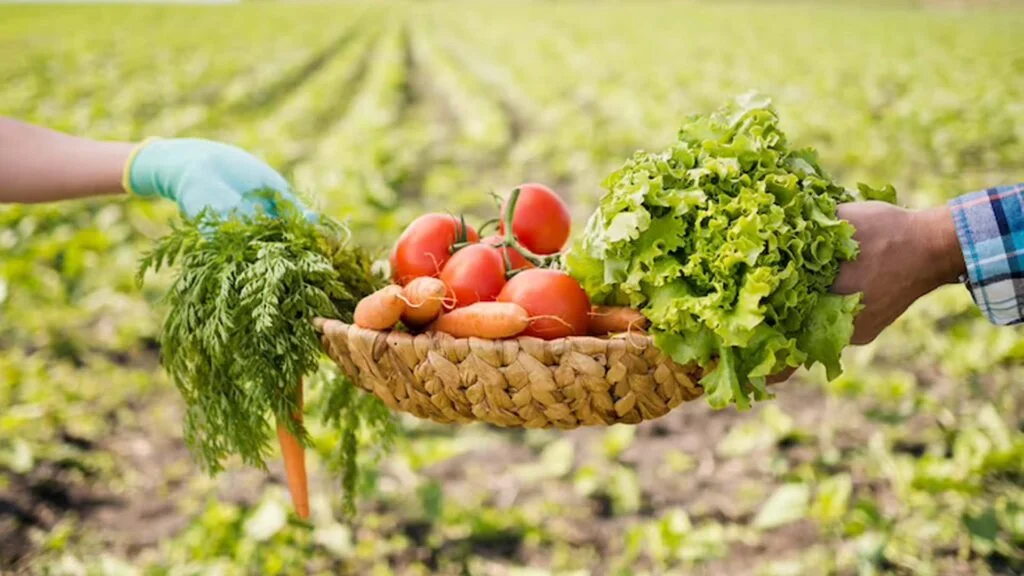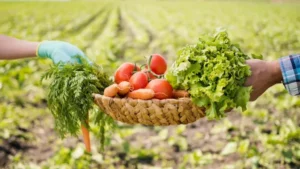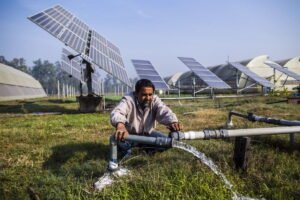Introduction
Sustainable agriculture has emerged as a pivotal approach to addressing the pressing environmental challenges of our time. As global populations grow and climate change intensifies, the need for farming practices that protect natural resources while ensuring food security becomes increasingly urgent.
Unsustainable agricultural methods, characterized by excessive chemical use, monoculture, and poor water management, have led to soil degradation, loss of biodiversity, and significant greenhouse gas emissions.
Conversely, sustainable agriculture promotes practices that enhance soil health, conserve water, and support biodiversity. By integrating ecological principles into farming systems, sustainable agriculture not only safeguards the environment but also contributes to the resilience of agricultural systems against climate variability. This article delves into the multifaceted benefits of sustainable agriculture for environmental protection, supported by scientific data and statistics.

1. Understanding Sustainable Agriculture
Sustainable agriculture refers to farming practices that meet current food needs without compromising the ability of future generations to meet theirs. This approach emphasizes environmental health, economic profitability, and social equity. According to the Food and Agriculture Organization (FAO), sustainable agriculture aims to enhance productivity while minimizing negative impacts on the environment.
Key Principles:
- Resource Efficiency: Utilizing resources such as water and energy more effectively.
- Biodiversity Conservation: Promoting diverse agricultural systems that support ecosystem health.
- Soil Health: Implementing practices that maintain or improve soil quality.
2. Mitigating Climate Change
Agriculture is a significant contributor to greenhouse gas emissions, accounting for approximately 10-12% of total emissions globally. Sustainable agricultural practices can play a crucial role in mitigating these effects.
Carbon Sequestration:
Practices such as agroforestry and no-till farming enhance carbon sequestration in soils. For instance, agroforestry systems can sequester up to 30% more carbon compared to conventional farming methods1. By integrating trees into agricultural landscapes, farmers can improve soil quality while capturing atmospheric CO2.
Reduced Emissions:
Sustainable practices reduce reliance on synthetic fertilizers and pesticides, which are energy-intensive to produce and apply. Studies show that adopting organic farming methods can lower greenhouse gas emissions by up to 25% compared to conventional farming2.

3. Enhancing Biodiversity
Biodiversity is essential for resilient ecosystems and food security. Unsustainable agricultural practices often lead to habitat destruction and species loss.
Promoting Ecosystem Services:
Sustainable agriculture enhances biodiversity by promoting crop rotation, cover cropping, and polyculture systems. These methods not only support diverse plant and animal life but also improve pollination services and pest control.
Statistics on Biodiversity:
Research indicates that farms employing sustainable practices can increase species richness by over 50% compared to conventional farms3. This biodiversity is crucial for maintaining ecosystem balance and resilience against pests and diseases.

4. Improving Soil Health
Soil degradation is a pressing issue in agriculture, with about one-third of global soils classified as degraded due to erosion, salinization, or nutrient depletion4. Sustainable agriculture addresses these challenges through various practices.
Soil Conservation Techniques:
- Crop Rotation: Alternating crops helps maintain soil fertility and disrupt pest cycles.
- Cover Cropping: Planting cover crops during off-seasons protects soil from erosion and improves organic matter content.
- No-Till Farming: Reduces soil disturbance, enhancing its structure and moisture retention.
5. Efficient Water Management
Agriculture accounts for approximately 70% of global freshwater withdrawals5. Sustainable practices focus on efficient water use to combat water scarcity issues.
Water-Saving Techniques:
- Drip Irrigation: Delivers water directly to plant roots, minimizing waste.
- Rainwater Harvesting: Captures rainwater for irrigation purposes.
Studies show that implementing drip irrigation can reduce water usage by up to 60% while maintaining crop yields6.
6. Economic Benefits of Sustainable Agriculture
Sustainable agriculture not only benefits the environment but also provides economic advantages for farmers.
Cost Savings:
By reducing dependence on expensive chemical inputs and adopting resource-efficient practices, farmers can significantly lower their operational costs. For example, transitioning to organic farming can lead to a 20% reduction in input costs over time1.
Market Opportunities:
Consumers are increasingly seeking sustainably produced food products. This trend creates new market opportunities for farmers who adopt sustainable practices.
Conclusion
The importance of sustainable agriculture in environmental protection cannot be overstated. By embracing practices that enhance biodiversity, improve soil health, mitigate climate change effects, and promote efficient resource use, we can create a more resilient agricultural system that supports both people and the planet. As we face ongoing environmental challenges, it is imperative for farmers, policymakers, and consumers alike to advocate for sustainable agricultural practices that ensure food security while protecting our natural resources.
Join the movement towards sustainable agriculture today—support local farmers who practice sustainability or consider implementing these techniques in your own gardening efforts!
Q&A Section
Q: What are some examples of sustainable agricultural practices?
A: Examples include organic farming, agroforestry, crop rotation, cover cropping, and integrated pest management.
Q: How does sustainable agriculture help combat climate change?
A: It reduces greenhouse gas emissions through improved land management practices and enhances carbon sequestration in soils.
Q: Can sustainable agriculture improve food security?
A: Yes! By promoting diverse crops and resilient farming systems, sustainable agriculture helps ensure stable food supplies even in changing climate conditions.
Resources
- Food and Agriculture Organization (FAO)
- US Environmental Protection Agency (EPA)
- European Commission on Sustainable Agriculture
- The Youth Cafe on Agriculture & Environmental Sustainability
- OECD/FAO Report on Environmental Sustainability in Agriculture
Read More
- Smart Farming: The Future of Modern Agriculture and Its Impact on Productivity
- Strategies to Increase Crop Yields in Agriculture: Effective Techniques for Farmers
- Types of Fertilizers: Benefits and Uses for Effective Crop Management
- The Importance of Sustainable Agriculture in Environmental Protection








